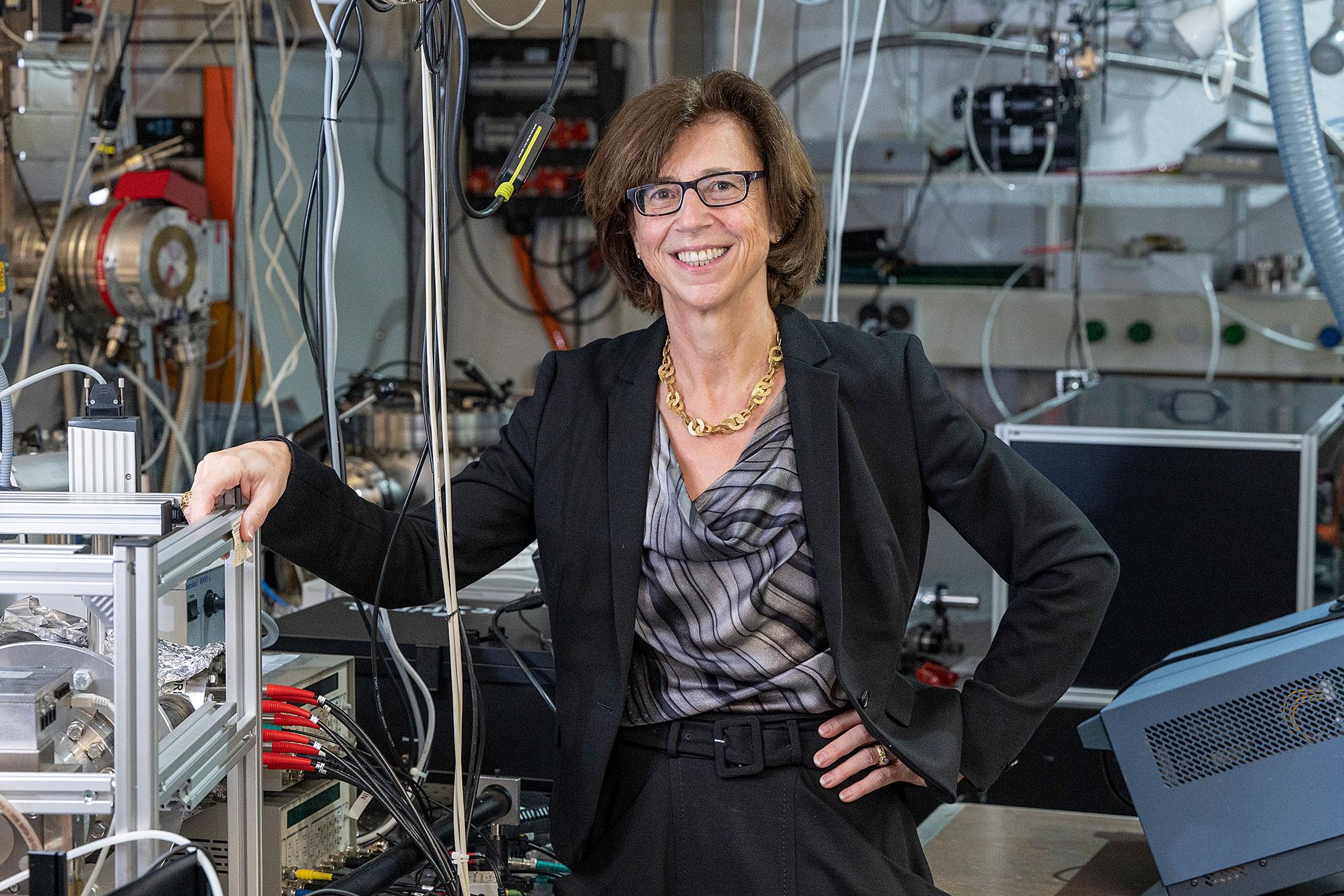Experimental physicist Ursula Keller wins Swiss Science Prize Marcel Benoist

Ursula Keller has shifted the boundaries of ultrafast laser physcis. She is awarded the Swiss Science Prize Marcel Benoist.
It is regarded as the 'Swiss Nobel Prize' among researchers and endowed with 250,000 Swiss francs. This year, the Swiss Science Prize Marcel Benoist goes to Ursula Keller, Professor of Experimental Physics at the Institute for Quantum Electronics at ETH Zurich. She has frequently pushed the boundaries of ultrafast laser physics with both theoretical models and experimental results.
“It is a huge honour for me to be awarded the Marcel Benoist Prize,” Ursula Keller announced. “It is recognition of the almost 30 years of applied and basic research at the ETH Zurich and the first science award I have received in Switzerland. I would like to thank my fantastic research group, all the postdocs, PhD students and external partners who have made this work possible.”
Ever since the laser was invented, researchers have sought to use it to transform materials. However, this was not possible with continuous laser beams because they were too inaccurate and heated up the materials too much. The solution was finally found in the use of pulsed laser light; however, this involved a complicated technique. Professor Keller solved the problem by using semiconductors and in 1991 invented a technology called SESAM, which stands for Semiconductor Saturable Absorber Mirror. This technology made it possible to produce light pulses lasting around a femtosecond – one millionth of a billionth of a second – using solid-state lasers. In this short time span the movements of atoms or the mechanisms of chemical reactions can be studied.
Today, the SESAM principle is used in many practical applications, including material cutting, optical communication, computers and smartphone manufacture, and also in medical technology, where, for example, lasers are used as scalpels in eye operations. Furthermore, the ultra-fast laser technology can be used to develop high-precision measuring instruments. Ursula Keller herself invented the world's most precise clock, the attoclock, which can measure in attoseconds, i.e. in billionths of a billionth of a second. The attoclock is so accurate that it can be used to measure the fundamental processes of quantum mechanics.
Joint award ceremony in Bern
The Swiss National Science Foundation (SNSF) was responsible for selecting the award winner on behalf of the Marcel Benoist Foundation. A joint award ceremony with the Swiss Science Prize Latsis, which goes to Kerstin Vokinger, will be held on 3 November 2022 at the Rathaus in Bern.
Federal Councillor Guy Parmelin, chair of the Marcel Benoist Foundation, and Professor Denis Duboule, chair of the Latsis Foundation, will present the awards. Federal Councillor Parmelin states: "We are extremely pleased that Ursula Keller and Kerstin Noëlle Vokinger are being awarded the 2022 Swiss science prizes. They are outstanding scientists and exemplify the excellence of Switzerland as a research location."
2022 prizewinner: Ursula Keller
Ursula Keller was born in Zug in 1959 and studied physics at ETH Zurich. She obtained a master's degree and PhD in applied physics at Stanford University. From 1989 she worked at AT&T Bell Labs in New Jersey. In 1993 she was elected associate professor and in 1997 full professor of experimental physics at ETH Zurich, making her the institution's first female physics professor.
From 2010 to 2022 Ursula Keller was director of the NCCR MUST (Molecular Ultrafast Science and Technology) research programme initiated by the SNSF. In 2012 she also founded the ETH Women Professors Forum, which she chaired until 2016. Ursula Keller has been awarded numerous prizes for her research achievements and was the first woman to receive the prestigious European Inventor Award from the European Patent Office for her life's work. In 2021 she was admitted to the US Academy of Sciences.
The Marcel Benoist Foundation
Since 1920, the Marcel Benoist Foundation has annually recognised outstanding independent research that is of relevance to human life conducted at Swiss higher education institutions. It thus pays tribute to researchers who exemplify the level of excellence of research conducted in Switzerland. Eleven laureates have already gone on to receive the Nobel Prize. Since 2018, the nomination and selection process has been handled by the Swiss National Science Foundation (SNSF) on behalf of the Marcel Benoist Foundation. The 2022 prize is awarded in the field of mathematics, natural sciences and engineering. More information can be found at: www.marcel-benoist.ch